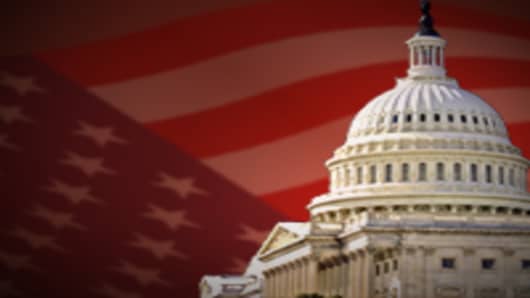Imagine what it was like in the negotiating room in Minnesota. It was just before midnight on June 30th and Minnesota's Governor Mark Dayton and the Republican leadership glared at each other across a conference room table.
The Governor looked around the room and said, "so, we are going to let our government shut down over tax hikes on millionaires?"
The Republican leadership nodded their heads and Republican House Speaker Kurt Zeller said, "yep, we strongly believe that raising taxes is bad for the economy and we won't raise taxes on millionaires simply because it is politically expedient."
"I believe it would be immoral for the State of Minnesota to cut services and not ask the rich to pay more in taxes. So, I guess the government is shutting down until one of us blinks," said the Governor.
"Guess so," said Republican Senate majority leader Amy Koch.
Maybe this is not how it happened, but the ideological divide that led Minnesota to shut down its government was over the role of government and whether the government should be increasing taxes while cutting spending to balance its budget, especially in a time of slow economic growth. At the end of the day, two weeks after the government shut down, the Governor blinked and, subject to negotiations, the budget will be approved, spending cuts will be made and no new taxes will be levied on Minnesota’s millionaires.


